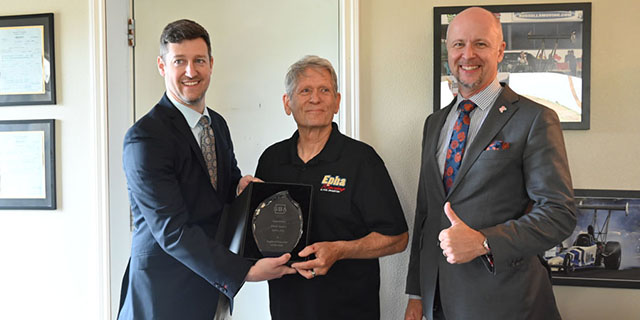CERTAIN COLD MEDICINES WILL NOW REQUIRE PRESCRIPTIONS
Published 11:15 am Friday, August 19, 2005

- By next July, over-the-counter cold and allergy medicines containing pseudoephedrine can be purchased with a prescription only in an attempt to cut back on methamphetamine production and usage.
By Sara Shepherd
Staff writer
HERMISTON Gov. Ted Kulongoski signed a bill on Tuesday making Oregon the first state to prohibit the sale of over-the-counter cold and allergy medicine containing pseudoephedrine, an ingredient used to make methamphetamine.
For patients to purchase any cold or allergy medicine containing pseudoephedrine such as Sudafed or Claritin D, they will have to do so in prescription form.
Kulongoski calls the measure “a step in the fight against the methamphetamine epidemic.”
The bill won overwhelming approval in both the Oregon House and Senate in recent weeks.
Under the new law, the Oregon Board of Pharmacy will have until next July to implement the prescription requirement.
Gary Schnabel, the board’s executive director, said the rule could be put into effect sooner than that possibly within the next three months.
Patients will be allowed as many as five refills in a six-month period, Schnabel said.
Medicines containing pseudoephedrine in forms other than liquid are already placed behind pharmacy counters, said Gary Blackburn, Bi-Mart pharmacist intern in Hermiston. Most medicine containing liquid pseudoephedrine will remain on the shelves. It is believed meth manufacturers are unable to isolate the contents needed for methamphetamine in liquid pseudoephedrine.
Oregon and other states are already requiring customers to sign a log book, dating their purchase of cold and allergy medicines containing pseudoephedrine, as well as showing a form of ID.
Blackburn said the new law requiring a prescription will be an unpopular one.
“So far, I feel that the government has done well with the meth usage problem by putting those medicines behind the counter,” he said. “But I don’t feel that it is necessary to make them prescription only. Already, by putting those kinds of medicines behind the counter and requiring the identification and log signing, customers are being limited to only 9 grams each month. I don’t think people are going to like the change. It’s only going to frustrate them.”
“People are already talking about it in the store,” he said.
Kulongoski said he was aware that the law might cause inconvenience for allergy and cold sufferers, but said pharmaceutical companies already are producing replacement medications that don’t contain pseudoephedrine and can’t be converted to meth.
Although hundreds of over-the-counter medicines will be directly affected by the bill, Blackburn says that there are plenty of alternatives to the pseudoephedrine. For example, Bi-Mart sells “pseudoephedrine free” medicines for cold and allergy.
“It’s been around a long time, but it is very comparable and it works for most,” he said.
State Rep. Wayne Krieger said other cold and allergy medicines come in versions that contain phenylephrine, an alternative to pseudoephedrine which works just as well for most consumers and can’t be converted in to highly-addictive methamphetamine.
“Is this going to be an inconvenience for some people? Yes, a little one,” said Krieger, “but 99 percent of people will find out that the other products are just as good, and they will buy them off the shelf.”
Blackburn supports efforts to reduce the use and manufacturing of methamphetamine, and feels previous steps have already been effective.
“As a consumer, I feel that it is important to make an effort to cut back on the meth issue, but even patients will always find a way to get more if they really want it,” said Blackburn. “I think that they are making a difference by simply selling it from behind the counter.”
While increasing amounts of methamphetamines come from Mexico, bill supporters say the law could sharply reduce the number of home meth labs, where the chemicals used in the process can pose severe health problems.
Kulongoski estimated that 20 to 25 percent of the meth sold in Oregon comes from home labs.
Tom Holt, executive director of the Oregon State Pharmacy Association, said his members support the new regulation.





